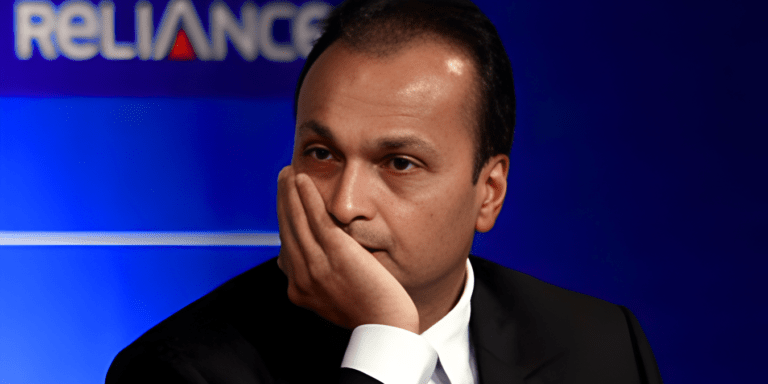
“Delhi HC rules no liberalised family pension for deaths during casual leave without a direct link to official duty. Learn about the judgment, its implications, and latest trends in family pensions in India. Essential reading for government employees and families navigating pension eligibility and benefits.”
In a significant ruling that has far-reaching implications for government employees and their families, the Delhi High Court recently held that liberalised family pension cannot be granted if the death of a government employee occurs during casual leave unless there is a direct causal link between the death and official duty. This judgment underscores the importance of establishing a clear connection between the employee’s demise and their official responsibilities to qualify for enhanced pension benefits.
The decision has sparked widespread discussion among legal experts, government employees, and policymakers, as it clarifies the scope of liberalised family pension under the Central Civil Services (Pension) Rules, 1972. In this blog post, we will delve into the details of the judgment, its implications, and the legal principles involved. We will also explore the latest data and trends related to family pensions in India, ensuring that you stay informed about this critical issue.
Background of the Case
The case in question involved Surender Yadav, a Sub-Inspector with the Central Reserve Police Force (CRPF), who tragically died in a road accident while on casual leave. Yadav had taken 14 days of casual leave in November 2014 to visit his ailing father. On November 9, 2014, while riding a motorcycle with his wife and daughter, he met with a fatal accident. Despite the Court of Inquiry (COI) concluding that Yadav’s death occurred while he was ‘on duty’, the CRPF denied his widow’s application for Liberalised Family Pension, Extra-Ordinary Family Pension, and Ex-Gratia Compensation.
Widow’s Claim
Leela Yadav, the widow of Surender Yadav, filed an application for Liberalised Family Pension, Extra-Ordinary Family Pension, and Ex-Gratia Compensation. She argued that her husband’s death should be considered as occurring in the performance of official duties, thereby making her eligible for these benefits. Leela Yadav’s claim was based on the classification of her husband’s leave as ‘on duty’ under service rules and the findings of the Court of Inquiry (COI), which concluded that Yadav’s death occurred while he was ‘on duty’.
CRPF’s Stand
The CRPF denied Leela Yadav’s application, stating that Surender Yadav’s death did not occur in the course of official duty but rather while he was on personal leave. The CRPF argued that the benefits sought by Leela Yadav were not applicable in this case, as there was no direct causal link between Yadav’s death and the performance of his official duties.
Legal Arguments and Court's Analysis
Widow's Legal Arguments
Leela Yadav's legal team presented several arguments to support her claim:
- Classification of Leave: They argued that the classification of Yadav's leave as 'on duty' under service rules should be sufficient to grant the benefits.
- Office Memorandum (OM) References: They referred to the OM dated April 20, 2011, which classifies deaths occurring under certain circumstances into five categories. They argued that Yadav's death fell under Category C (death due to an accident in the performance of duties) or Category D (death due to violence by terrorists or anti-social elements).
- Special Benefits: They also cited another OM dated September 11, 1998, which provided special benefits for government employees who died in service.
CRPF's Legal Arguments
The CRPF's legal team countered these arguments by emphasizing the following points:
- Nature of Leave: They argued that Yadav's death occurred while he was on personal leave, and not in the performance of official duties.
- Direct Causal Link: They stressed the importance of a direct causal link between the death and the performance of official duties for the benefits to be applicable.
Court's Interpretation and Ruling
The Division Bench of Justices Navin Chawla and Shalinder Kaur analyzed the arguments presented by both sides and provided a detailed interpretation of the relevant rules and regulations.
Key Points of the Ruling
- Direct Causal Link Requirement: The court held that the mere classification of leave as 'on duty' under service rules is not sufficient. There must be a direct causal link between the death and the performance of official duties for the family to be eligible for Liberalised Family Pension or Ex-Gratia Compensation.
- Fairness and Justice: The court emphasized that the interpretation of pension rules should align with the principles of fairness and justice. Benefits should be granted only in cases where the death is directly related to official duties.
- Precedent for Future Cases: This judgment sets a precedent for future cases involving the death of government employees during casual leave. It provides clarity on the interpretation of pension rules and the requirement of a direct causal link with official duties.
Implications of the Judgment
For Government Employees and Their Families
The ruling has significant implications for government employees and their families. It clarifies that benefits such as Liberalised Family Pension and Ex-Gratia Compensation are not automatically granted for deaths occurring during casual leave. The judgment underscores the importance of a direct causal link between the death and official duties.
For Pension Rules Interpretation
The judgment provides a clear interpretation of pension rules, ensuring that benefits are granted fairly and justly. It helps in preventing the misuse of pension benefits and ensures that they are provided to deserving cases.
Detailed Analysis
Legal Framework
The legal framework governing family pensions for government employees is complex. The Office Memorandum (OM) dated April 20, 2011, classifies deaths occurring under certain circumstances into five categories. These categories determine the eligibility for various benefits, including Liberalised Family Pension and Ex-Gratia Compensation.
Arguments Presented
The widow, Leela Yadav, argued that her husband's death fell under Category C (death due to an accident in the performance of duties) or Category D (death due to violence by terrorists or anti-social elements). She also referred to another Office Memorandum dated September 11, 1998, which provided special benefits for government employees who died in service.
On the other hand, the Union argued that SI Yadav's death did not occur in the course of official duty but rather while he was on personal leave at his hometown.
Court's Interpretation
The court's interpretation of the rules was clear. It held that the classification of leave as 'on duty' under service rules is not enough. There must be a direct causal link between the death and the performance of official duties. This interpretation aligns with the principles of fairness and justice, ensuring that benefits are granted only in cases where the death is directly related to official duties.
Impact on Future Cases
This judgment sets a precedent for future cases involving the death of government employees during casual leave. It provides clarity on the interpretation of pension rules and the requirement of a direct causal link with official duties. This will help in ensuring that benefits are granted fairly and justly.
Final Thought
The Delhi High Court's ruling on the ineligibility of liberalised family pension for deaths occurring during casual leave, unless there is a direct causal link with official duty, is a significant development in the realm of pension law. It provides much-needed clarity on the eligibility criteria for enhanced pension benefits and reinforces the importance of establishing a clear connection between the employee's death and their official responsibilities.
As the number of family pensioners in India continues to grow, it is crucial for the government to ensure that the pension system is transparent, efficient, and fair. The digitization of pension services and the introduction of online platforms like Bhavishya are positive steps in this direction. However, there is still a need for greater awareness and education among government employees and their families about the specific requirements for liberalised family pension.
In light of the Delhi High Court's judgment, it is also essential for employees to maintain proper documentation and evidence to support their claims for enhanced pension benefits. This will not only help streamline the application process but also reduce the likelihood of disputes and litigation.
As we move forward, it is hoped that the government will continue to take proactive steps to address the challenges in pension administration and ensure that the families of government employees receive the support and benefits they deserve. The Delhi High Court's ruling serves as a timely reminder of the importance of clarity, fairness, and accountability in the pension system, and it is a step in the right direction towards achieving these goals.































